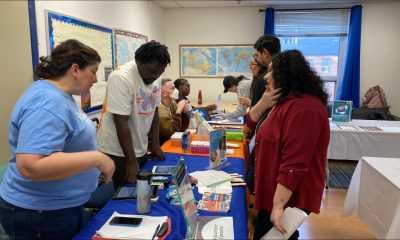Youth Development
Report Cards 101

Youth Development
Understanding the multiple layers involved in navigating education spaces Parents of Black Children launch Navigating the Education System
Youth Development
Toronto prepares families for COVID-19 vaccination of children
Youth Development
Act as if what you do makes a difference. IT DOES
-

 Community News2 weeks ago
Community News2 weeks agoSkills for Change hosts a highly successful connections fair for youth new to Canada
-

 Community News2 weeks ago
Community News2 weeks agoThe Canadian Banking System is set to be radicalized by an open banking framework
-

 Community News1 week ago
Community News1 week ago“It’s a demographic tsunami!” Consensus about the benefits of Canada’s mass immigration is now starting to fray
-

 Community News2 weeks ago
Community News2 weeks agoLooking to tantalize your travel senses? In March it was Better In The Bahamas
-

 Community News1 week ago
Community News1 week agoOntario invests $16.5 million in Black Youth Action Plan to develop skills for in-demand careers
-

 Community News1 week ago
Community News1 week agoCanada’s fails to adhere to its International Human Rights obligations; we can’t have that
-

 Community News2 weeks ago
Community News2 weeks agoYoung people grappling with anxiety disorders and OCD can find substantial relief and improved quality of life in 2024
-

 Community News6 days ago
Community News6 days agoFour helpful tips to get your boss off your back


























